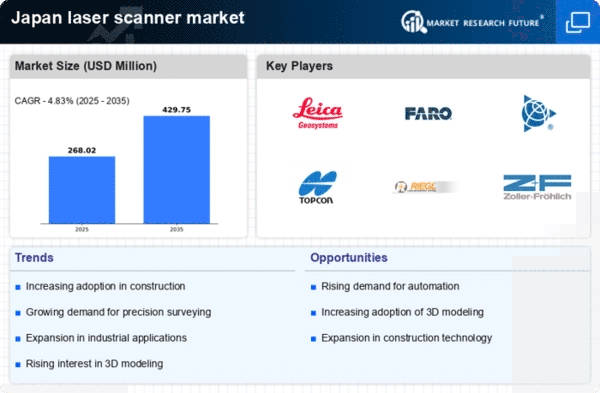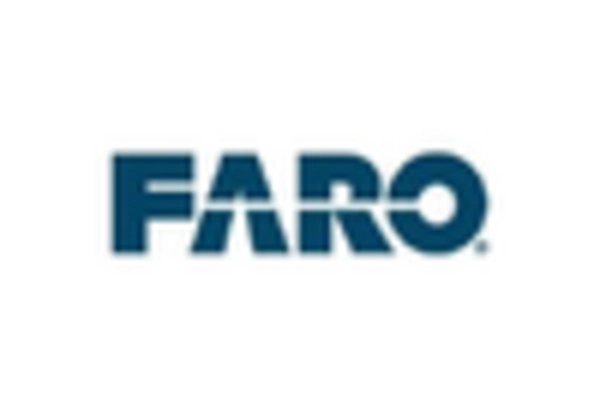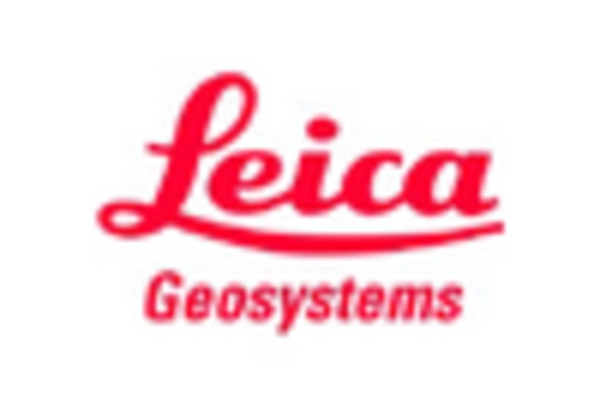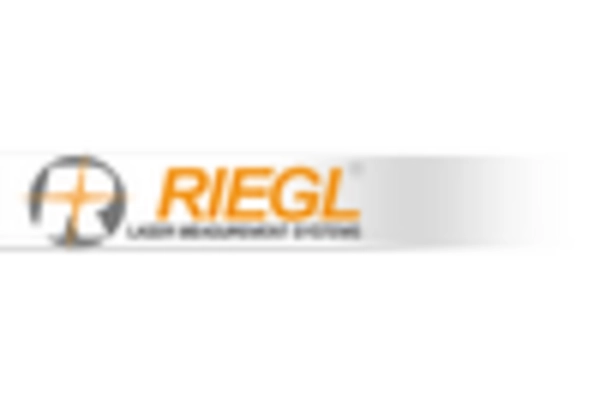Technological Integration with Digital Twins
The integration of laser scanning technology with digital twin applications is emerging as a key driver in the laser scanner market. This trend is significant as industries leverage digital twins for real-time monitoring and simulation. In Japan, industries are increasingly leveraging digital twins for real-time monitoring and simulation of physical assets. This synergy allows for enhanced visualization and analysis, leading to improved operational efficiency. As organizations recognize the value of combining laser scanning with digital twin technology, the demand for advanced laser scanners is expected to rise. Projections suggest that the market for laser scanners used in conjunction with digital twins could grow by 10% annually, indicating a strong trend towards digital transformation in various sectors.
Increased Adoption in Industrial Applications
The laser scanner market in Japan is experiencing a notable surge in adoption across various industrial applications. Industries such as manufacturing, automotive, and aerospace are increasingly utilizing laser scanning technology for precision measurements and quality control. This trend is driven by the need for enhanced accuracy and efficiency in production processes. According to recent data, the industrial sector accounts for approximately 40% of the total demand for laser scanners in Japan. As companies strive to improve operational efficiency and reduce costs, the integration of laser scanning technology is likely to become more prevalent, thereby propelling growth in the laser scanner market.
Rising Investment in Infrastructure Development
Japan's ongoing investment in infrastructure development is significantly impacting the laser scanner market. The government has allocated substantial budgets for projects aimed at enhancing transportation networks, urban development, and public facilities. This investment is expected to create a robust demand for laser scanning technology, which is essential for surveying, mapping, and monitoring construction sites. Recent reports indicate that infrastructure projects in Japan are projected to grow by 5% annually, leading to an increased need for accurate data collection and analysis. Consequently, the laser scanner market is poised to benefit from this upward trend in infrastructure spending.
Growing Emphasis on Environmental Sustainability
The laser scanner market is also influenced by Japan's growing emphasis on environmental sustainability. As the nation seeks to reduce its carbon footprint and promote eco-friendly practices, laser scanning technology is being adopted for environmental monitoring and assessment. This technology enables precise data collection for projects related to land use, forestry, and urban planning, facilitating better decision-making in environmental conservation. The market for laser scanners in environmental applications is expected to expand by approximately 7% over the next few years. This reflects the increasing integration of sustainable practices in various sectors. This shift is likely to drive further growth in the laser scanner market.
Expansion of Educational and Research Institutions
The expansion of educational and research institutions in Japan is contributing to the growth of the laser scanner market. Universities and research centers are increasingly incorporating laser scanning technology into their curricula and research projects, fostering innovation and development in this field. This trend is likely to enhance the skill set of future professionals, leading to a greater understanding and application of laser scanning technology across various industries. As educational institutions invest in advanced laser scanning equipment, the market is expected to see a rise in demand from academic and research sectors, potentially increasing market size by 6% over the next few years.















